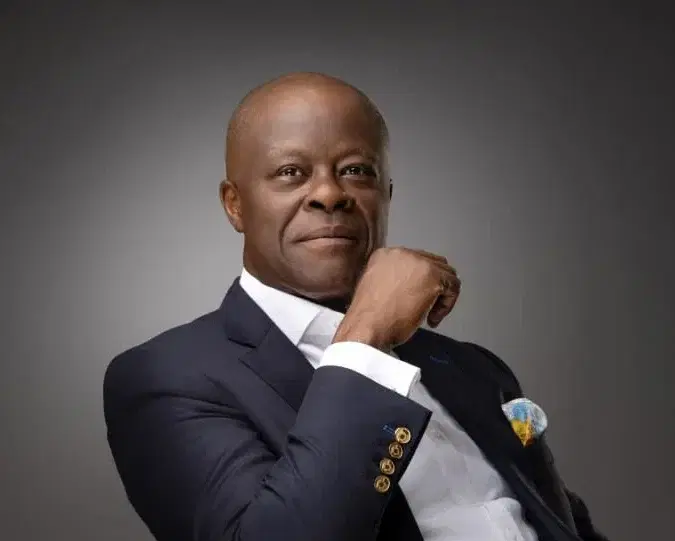584
By Tracy Moses
The Minister of Finance and Coordinating Minister of the Economy, Wale Edun, has said that the government’s bold reforms are beginning to restore investor confidence and reduce the country’s debt vulnerabilities.
Speaking at the 11th Annual Conference and General Assembly of the West Africa Association of Public Accounts Committees (WAAPAC), hosted by the House of Representatives Committee on Public Accounts in Abuja on Monday, Edun stressed that fiscal indicators are showing improvement despite persisting economic pressures across the region.
The conference, themed “Strengthening Parliamentary Oversight of Public Debt”, brought together parliamentarians and financial experts from across West Africa to deliberate on debt transparency and accountability.
Edun admitted that Nigeria, like many of its neighbours, is still confronted with high debt service costs, weak revenues, and rising public expenditure. However, he maintained that reforms under President Bola Tinubu’s administration, such as fuel subsidy removal, foreign exchange liberalisation, and tax reforms — are reversing negative trends and laying the foundation for sustainable growth.
“Nigeria is at a turning point. Reforms are yielding measurable results in investor confidence, reduced fuel import spending, improved energy self-sufficiency, and greater value addition within our economy,” Edun said.
According to him, the country’s debt service-to-revenue ratio has dropped to about 60 percent in 2024, while debt-to-GDP stands at 38.8 percent — a level he described as comfortable by global benchmarks. He also disclosed that government revenue grew by 34.7 percent in the first half of 2025, compared with the same period in 2024.
Edun stressed that government’s focus is to create the enabling environment for private investment, which accounts for about 90 percent of economic activity. He also highlighted priorities such as debt transparency, prudent borrowing, stronger revenue mobilisation, and adherence to the Fiscal Responsibility Act.
On global challenges, he warned that high interest rates, shrinking aid flows, and declining trade were compounding fiscal difficulties for developing nations, urging African countries to adopt reforms and digital tools to enhance revenue collection.
The Senate President, Godswill Akpabio, represented by Senator Osita Izunaso, also addressed participants, warning that unchecked borrowing could jeopardise democracy and mortgage future generations. He called for stronger constitutional authority for public accounts and finance committees to safeguard fiscal stability.
“Africa’s progress depends on building resilient institutions, not strongmen. Legislative oversight is indispensable to transparency and accountability,” Akpabio said.
Speaker of the House of Representatives, Abbas Tajudeen, meanwhile raised concern over Nigeria’s rising debt profile. Represented by House Leader Prof. Julius Ihonvbhere, he disclosed that the nation’s total debt stock surged to ₦149.39 trillion (US$97 billion) in Q1 2025, from ₦121.7 trillion in the same quarter of 2024.
He warned that with the debt-to-GDP ratio climbing to 52 percent — above the statutory ceiling of 40 percent — stronger oversight and transparency in borrowing have become urgent. Abbas also revealed that 35 percent of Africa’s debt is owed to Western private lenders, 39 percent to multilateral institutions, 13 percent to bilateral creditors, and 12 percent to China.
The Speaker proposed the establishment of a West African Parliamentary Debt Oversight Framework under WAAPAC to harmonise debt reporting, set transparency standards, and empower parliaments with timely data. He further insisted that borrowing must be directed at infrastructure, education, healthcare, and job creation, rather than consumption or corruption.
Chairman of the Public Accounts Committee, Bamidele Salam, announced that his committee had recovered over ₦200 billion in lost revenues for the federal government in the past year. He described Nigeria’s hosting of WAAPAC for the first time since its creation in 2009 as significant, given the continent’s growing debt concerns.
Salam also outlined progress made under the committee, including adoption of reports for the first time since 1999, passage of the long-awaited Audit Bill (now before the Senate), digitisation of committee hearings, and the launch of PAC Magazine to strengthen public engagement.
WAAPAC President, Hon. Issouf Traore, in his goodwill message, applauded President Tinubu’s reform agenda and called on African nations to deepen cooperation in addressing shared fiscal challenges.



